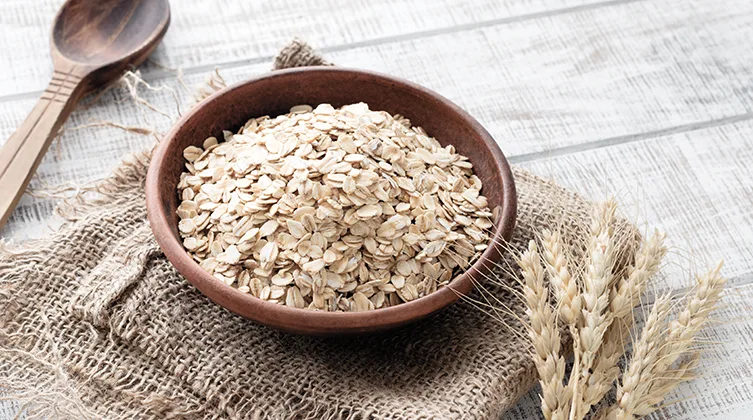Oats are an absolute staple in my diet. I enjoy them, find them gratifying and they serve me well. One of the most common questions I get asked as a nutritionist is “are oats gluten-free?” And, “can I still eat oats on a gluten-free diet?” The answer to this question is rather convoluted. Even the science can’t decide whether to give oats the thumbs up or down for people following a strict gluten-free diet.
Even the science can’t decide whether to give oats the thumbs up or down for people following a strict gluten-free diet.
While oats do not contain gluten per say. They can become contaminated from neighbouring gluten-containing crops, and contain a protein structurally similar to the gluten proteins, gliadin and glutenin, called avenin.
Most scientific studies demonstrate that pure oats are well tolerated by most people with Coeliac Disease (a pathological allergy to gluten); while there is limited evidence showing that a small number may be intolerant. Contamination of commercial oats by wheat, barley, and rye is considered one of the main reasons for this apparent intolerance and is an issue of concern for assessing the toxicity of oats. Other scientists believe that the molecular similarities between the storage protein in oats, avenin, and those in the typical gluten-containing grains (namely wheat, barley and rye) could be the problematic element if consumed in large enough amounts.[1]
However avenin in oats is present at relatively low levels. In wheat, barley and rye, the gluten storage proteins constitute 40-50%, 30-50%, and 35-45% of total proteins, respectively;[2] while avenin in oats represents only 5-15% of the total proteins.[3] Avenins also appear to be less immunologically active when compared to gliadin in wheat.[4] Indeed, oats do not appear to hinder the symptomatic and intestinal healing of people with Coeliac Disease. The few reports of adverse gastrointestinal reactions to oats were “transient, mild and were explained as the effect of an increased intake of fiber from oat products rather than the reoccurrence of clinical manifestations of coeliac disease.”[1]
If you are still unsure about oats, tune in and listen to your body. This will help you to determine whether oats serve you well. Alternatively, you can remove them from your diet for 6-8 weeks and then reintroduce them. Keep a diary throughout of all your symptoms and how you feel. If you don’t feel any significant difference with oats in your diet, that is great! There are numerous benefits to oats.
A few reasons to enjoy oats:
1. Great source of dietary fibre, especially beta-glucan.
2. Help stabilise your blood sugar levels and insulin, providing a continuous source of energy.
3. Help lower total cholesterol and the “less-healthy” LDL cholesterol, while promoting the “healthy” HDL cholesterol.
4. Lower your risk of cardiovascular disease, colorectal cancer and diabetes.
5. Help you feel fuller and more satisified for longer.
6. Assist with skin problems and irritations.
7. Promote desirable gut bacteria.
8. Rich in antioxidants.
9. Excellent source of vital nutrients such as essential amino acids, B vitamins, phosphorus, iron, potassium, magnesium and vitamin E.
10. Aid with weight-loss.
11. Provide a greater variety of food choices in a gluten-free diet.
——————————
[1] Pulido OM et al. Introduction of oats in the diet of individuals with Celiac Disease: a systematic review, Advances in Food and Nutrition Research, 57; 2009.
[2] Arendt EK and Zannini E, Oats, in Cereal grains for the food and beverage industries, Woodhead Publishing, 2013.
[3] Kilmartin C et al. Intestinal T cell responses to cereal proteins in celiac disease. Dig Dis Sci, 51; 2006.
[4] Silano M et al. In vitro tests indicate that certain varieties of oats may be harmful to patients with coeliac disease, Eur J Gastroenterol Hepatol, 22; 2007a. Silano M et al, Avenins from different cultivars of oats elicit response by coeliac peripheral lymphocytes, Scand J Gastroenterol, 42; 2007b.
Love oats??? Check out these recipes:
- Breakfast Granola Slice
- Creamy Coconut Porridge





